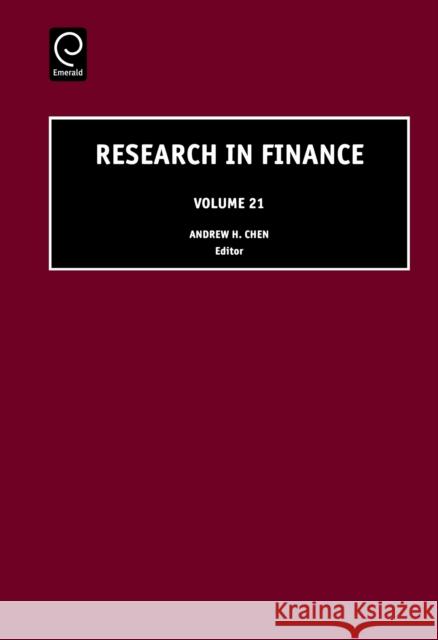Research in Finance » książka
Research in Finance
ISBN-13: 9780762311613 / Angielski / Twarda / 2005 / 276 str.
Research in Finance
ISBN-13: 9780762311613 / Angielski / Twarda / 2005 / 276 str.
(netto: 512,35 VAT: 5%)
Najniższa cena z 30 dni: 534,66
ok. 30 dni roboczych.
Darmowa dostawa!
A total of eleven papers in this volume represent recent research on important topics in finance. The contributions include analyses of issues relating to asset prices, the behaviour of stock returns, and capital-raising activities. Hodges, et al employ stochastic dominance arguments to show that the efficiency of time diversification depends on the degree of autocorrelation in security returns. In their study of the announcement effects of ninety-three minority equity investments, Chan, et. al find a neutral stock price response on average for acquiring firms but a significantly positive response for selling firms. Nguyen, et al provide evidence on the returns structure of U.S. information technology stocks surrounding the bursting of the internet bubble in early 2000. In a study of the informational effects of auditor reputation, Godby and Mahar, Jr. find that implied volatilities for firms audited by Andersen have increased relative to those for firms audited by other Big Five firms. Charaput and Chang find that the usage of installment receipts enhances liquidity in Canadian secondary equity offerings. The contributions to this volume also examine important issues in international finance and financial institutions. Brailsford, et al use a VECM technique to examine Purchasing Power Parity and causality between the yen and the dollar. Sarmas studies the impact of Hong Kong's fixed exchange rate system and Singapore's floating exchange rate system on the correlation between the US and the two respective countries' stock markets. Povel develops a theoretical model to explain multiple banking as a commitment device. Baer, et al develop a model and empirically examine how the creation of a futures clearinghouse can reduce the need for margin in bilateral and multilateral settings. Roberts and Siddiqi provide an empirical analysis of the link between collateralization and the number of lenders in private debt contracts. Finally, Tripp et al empirically examine the relative efficiency of single versus multiple common bond credit unions.











